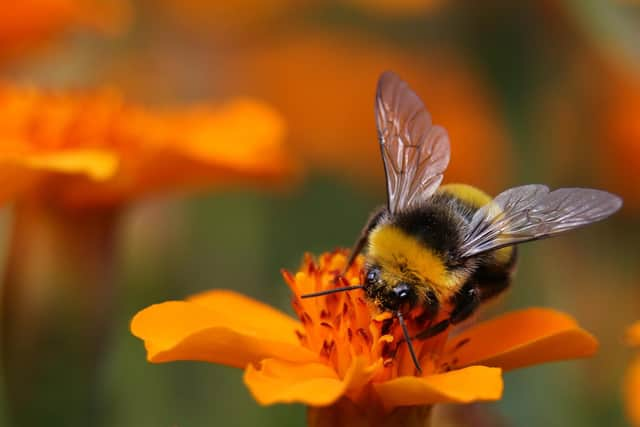Litany of weather extremes challenged wildlife in 2022, National Trust says
In its annual review of the year, the conservation charity said 2022’s weather had been challenging for nature, from habitats scorched by wildfire to natterjack toads, butterflies, birds and bats hit by drought.
The organisation warned this year was a “stark illustration” of the difficulties many of the UK’s species could face without more action to tackle climate change and help nature cope – with extremes likely to worsen as temperatures rise.
Advertisement
Hide AdAdvertisement
Hide AdThis year, the country saw a warm January, followed by back-to-back storms in February that brought down trees, a dry spring, a heatwave summer with temperatures above 40C for the first time on record and drought, before ending with a freezing snap this month followed by milder weather.


Alongside the weather extremes, 2022 was also a devastating year for wild birds hit by avian flu, with thousands of seabirds dying in colonies such as on the Farne Islands off the coast of Northumberland, where they had returned to breed.
While there were some “winners” this year, including good apple crops on many National Trust estates, and another record-breaking year for choughs breeding on its land in Cornwall, there were also many losers from the turbulent seasons, the charity said.
The hot summer and months of low rainfall dried up rivers, fragile chalk streams and ponds, damaged crops and natural habitats, and fuelled wildfires that destroyed landscapes.
Wildfires on National Trust land scorched areas including Zennor Head, Cornwall, Bolberry Down in south Devon, Baggy Point in north Devon and Studland in Dorset, destroying homes of species including rare sand lizards.
Flying insects, including many butterfly species and bumblebees, had a poor year as flowering plants withered and died in the dry heat, and the lack of insects had knock-on impacts on birds such as swifts which rely on them to feed their young.
Keith Jones, climate change adviser at the National Trust, said: “There is no escaping that this year’s weather has been challenging for nature.
“Drought, high temperatures, back-to-back storms, unseasonal heat, the recent cold snap and floods means nature, like us, is having to cope with a new litany of weather extremes.”
Comments
Want to join the conversation? Please or to comment on this article.